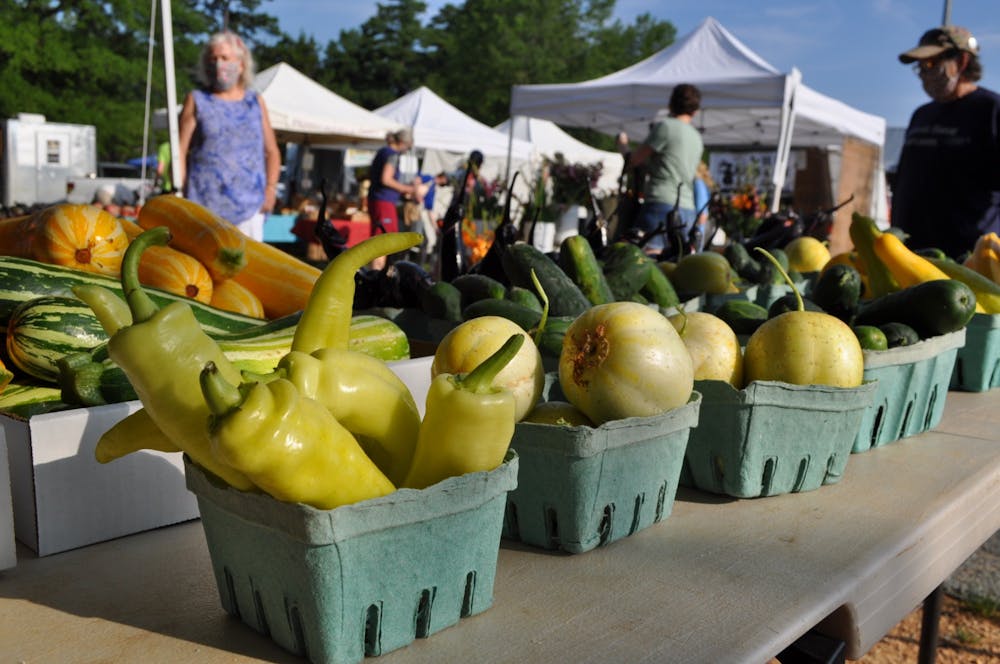CORRECTION: A previous version of this article incorrectly stated the size of Split Acre Farm and mis-contextualized Joe Tedrow and Lisbeth Rasmussen’s involvement with the land. The article has been updated to reflect the proper acreage of leased land. The Daily Tar Heel apologizes for this error.
Despite what appears to be an increasing demand for local food, losses in sales may be catastrophic for some farms. Local farmers have not felt the challenges of the pandemic equally — and even some of those selling out weekly on brand-new online stores have not managed to recover their pre-coronavirus income.
Additional labor
Lisbeth Rasmussen and Joe Tedrow run Split Acre Farm on 13 acres of leased land in Rougemont. Typically, they sell only at farmers' markets. The pandemic changed that.
In March, after witnessing some local markets close, they started a Community Supported Agriculture effort, which works like a seasonal local food subscription service: customers pay up front to receive a share of whatever a farm produces every week for a season.
Rasmussen said they sized their Community Supported Agriculture shares to be able to cover rent and utilities and pay their two part-time employees, including sick time. She said they hoped to use Community Supported Agriculture as a safety net and continue selling at the market.
Rasmussen said she saw high demand for their Community Supported Agriculture shares. But for Split Acre, she said running it was not as profitable as selling at the market — it required more labor.
"We're spending two days a week as a crew, additional time that we didn't used to use, packaging orders, working on the website, on new food safety protocols," she said. "All of this additional labor is going into the same crops that we were selling for the same price last year."




